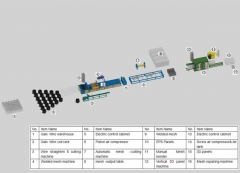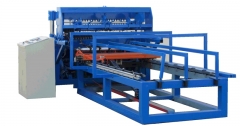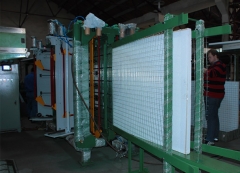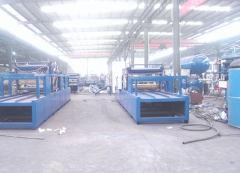Comprehensive Guide to Insulated Concrete Forms (ICF)
2025-01-23
Comprehensive Guide to Insulated Concrete Forms (ICF)
Introduction
Insulated Concrete Forms (ICF) have revolutionized the construction industry by offering energy efficiency, durability, and sustainability. This guide explores the key aspects of ICF construction, addressing frequently asked questions and providing insights from case studies and research.
What is ICF?
ICF, or Insulated Concrete Forms, are hollow blocks or panels made of expanded polystyrene (EPS) or similar materials. These forms are stacked to create walls, then filled with reinforced concrete, combining insulation and structural strength in one system.

Is ICF Used in New or Existing Projects?
ICF is versatile and can be used in both new construction and retrofitting existing buildings. For new projects, ICF ensures energy efficiency and durability from the start. In renovations, ICF can enhance thermal performance and sound insulation by upgrading existing walls.

Is an ICF Wall a Good Insulator?
ICF walls are excellent insulators, thanks to their EPS or similar material layers. These walls reduce thermal bridging, maintain consistent indoor temperatures and reducing heating and cooling demands.
What is the Maximum R-Value of an ICF Wall?
The R-value of an ICF wall depends on the thickness of the EPS layers and the concrete core. Typical ICF walls offer R-values ranging from R-22 to R-30, with some advanced systems achieving higher ratings. This makes ICF an ideal choice for energy-efficient construction.
Is ICF Construction Less Expensive?
While the upfront cost of ICF construction can be higher than traditional wood-frame methods, the long-term savings on energy bills and maintenance often offset the initial investment. Additionally, ICF reduces construction time and labor costs due to its modular nature.
How Long Does ICF Last?
ICF structures are designed to last for centuries. The combination of reinforced concrete and durable insulation materials ensures resistance to weather, pests, and decay, significantly outlasting traditional wood-frame buildings.
Does ICF Need a Vapor Barrier?
ICF walls do not typically require a separate vapor barrier. The EPS layers act as a built-in barrier, preventing moisture infiltration and reducing the risk of mold growth.

How Much Does ICF Save Over Time?
ICF homes offer substantial savings over their lifecycle. They reduce heating and cooling costs by 20-50% compared to wood-frame homes. Furthermore, maintenance expenses are lower due to the durability of the materials.
Energy Comparison: ICF vs. Wood-Frame Homes
ICF homes are 30-50% more energy-efficient than wood-frame homes. The continuous insulation and airtight construction minimize energy loss, making ICF an environmentally friendly and cost-effective choice.

ICF Case Studies
Life Cycle Performance of ICF
A study by the British Columbia Institute of Technology (BCIT) evaluated the life cycle performance of ICF construction. The findings highlighted:
· Energy Efficiency : ICF walls reduced energy consumption by up to 50% compared to traditional methods.
· Durability : ICF buildings demonstrated superior resistance to environmental wear and tear, extending their lifespan.
University of Tennessee Study
The University of Tennessee conducted a 30-year lifecycle cost analysis of ICF versus traditional wood-frame construction. Key findings include:
· Energy Savings : ICF homes reduced energy costs by an average of 44%.
· Maintenance : ICF structures required significantly less maintenance due to their durability.
· Environmental Impact : The reduced energy consumption of ICF homes contributed to a lower carbon footprint.
Cost Analysis by Specify Concrete
Specify Concrete analyzed the lifecycle cost of ICF compared to wood-frame homes. Highlights include:
· Initial Costs : While ICF had a higher initial investment, the breakeven point was achieved within 5-7 years due to energy savings.
· Long-Term Value : Over 30 years, ICF homes saved homeowners an average of 20% in total costs.
Conclusion
ICF construction is an innovative solution for modern, energy-efficient homes. Its benefits, including superior insulation, durability, and cost savings, make it a compelling choice for both residential and commercial projects. With extensive research and case studies supporting its advantages, ICF is poised to become a standard in sustainable construction.
Ready to explore ICF technology for your next project? Visit our website to learn more about our ICF block production line: https://www.hbhscn.com/icf-block-production-line_p64.html


















